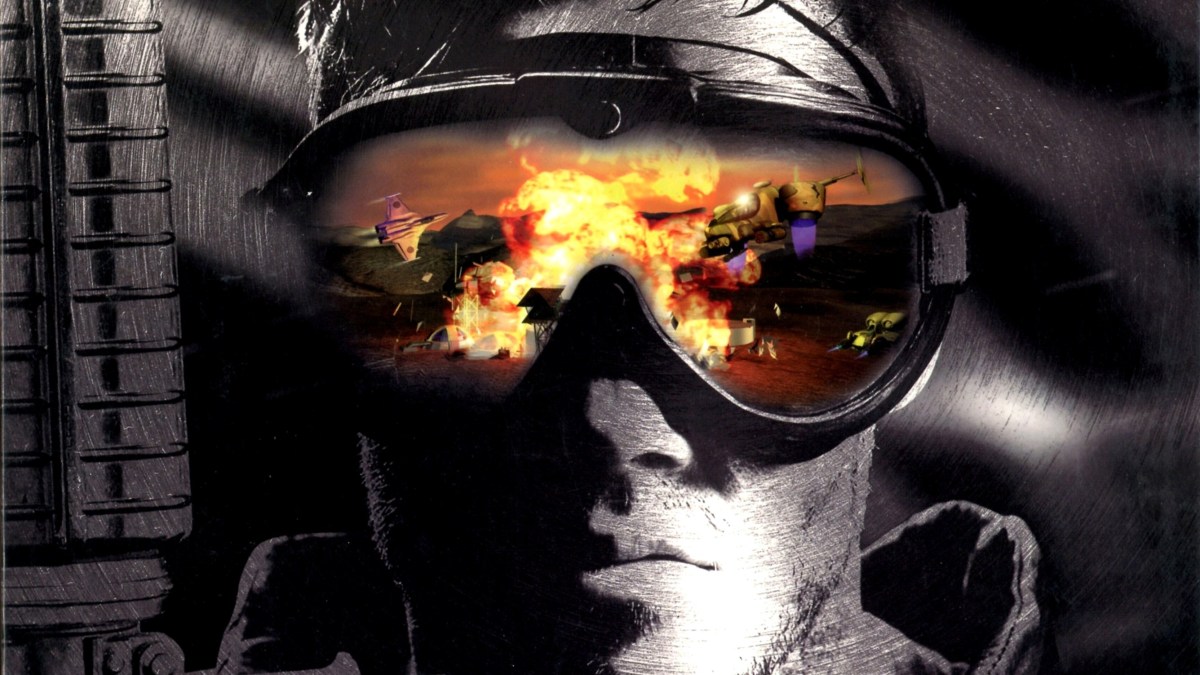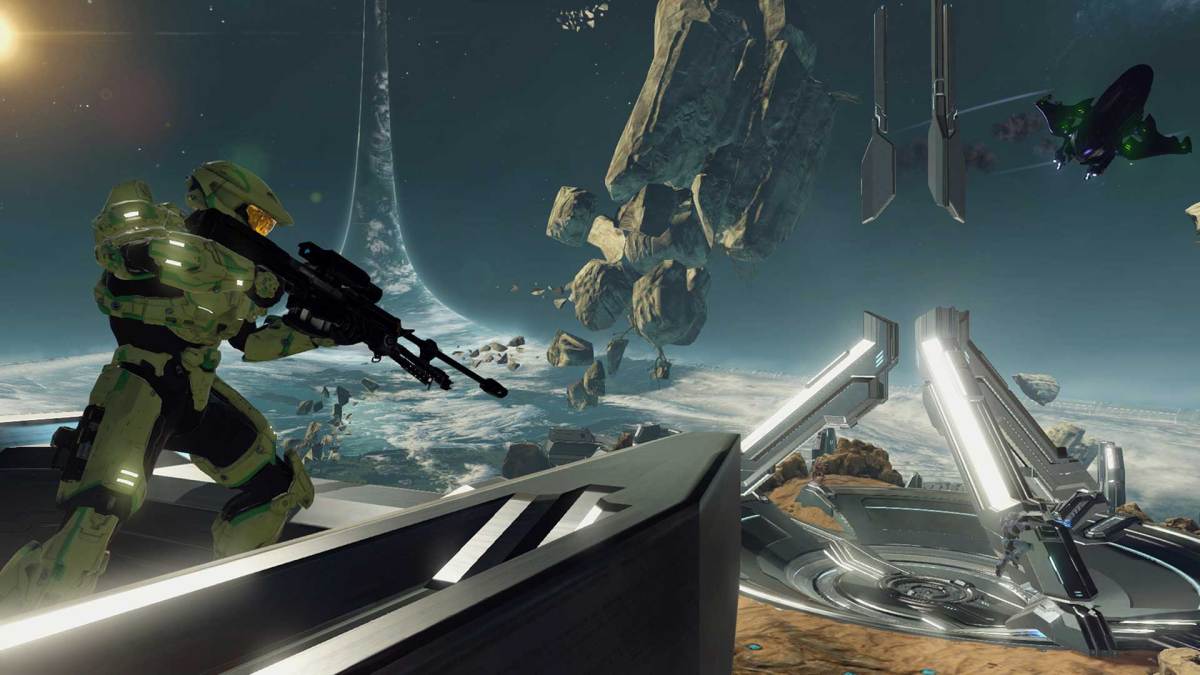No joke, while I was midway through writing this article, EA dropped Command & Conquer – The Ultimate Collection on Steam. I had just been wondering how where I could get Renegade these days, and speak of the devil. I know what I’m doing this weekend.
One of the most amusing stories I have from my youth is the time a cousin and I spent most of the day playing Command & Conquer: Red Alert while eating Warheads candy. And not just, like, a package of Warheads, but this big basket of them. For the next few days, I was peeling dead skin off my tongue. But the point of this story is that Command & Conquer has had a place in my heart since I was a kid.
The series has been going since 1995 and went quiet after 2010 (not counting Rivals). In that time, it’s seen some ups and downs, but mostly ups. To help you separate the ore from the Tiberium, here’s a tier overview of the games in the series. I’ve tucked the expansion packs under their relevant entry since it would be rather difficult to compare them.
F-Tier
Command & Conquer: Sole Survivor (1997)
If you don’t remember Sole Survivor, neither does anyone else. In fact, it’s the only entry on this list that doesn’t have a Wikipedia page or a user-submitted description on MobyGames. It was an online-only affair, which is interesting since Command & Conquer already had an online mode baked in.
Rather than building bases and controlling an army, you controlled a single unit, essentially in the same way you would in the RTS. In a way, it controls like a MOBA, but really, it’s mostly a deathmatch. You could move your units over power-ups, but you were still clicking places and letting them drive themselves.
If this was a mod instead of a retail game, it might have had some value back in the day. But as a retail product, it’s just baffling. I think it says something when EA even leaves it out of The Ultimate Collection.

D-Tier
Command & Conquer: Rivals (2018)
I’m admittedly biased against mobile games, so I haven’t even played Command & Conquer Rivals. It’s mostly just above Sole Survivor in the ranks because some people say Rivals is decent, which Sole Survivors isn’t, so I’m just going to take people’s word for it and place it here.
Command & Conquer 4: Tiberian Twilight (2010)
If 2007’s Command & Conquer 3 suggested that the series still had some fuel in the tank, Command & Conquer 4: Tiberian Twilight just drove it off a cliff. I can understand the intent here. The fact that there hasn’t been a proper game in the series since (sorry, Rivals) should say it all. The RTS genre was maybe, possibly at risk of growing stale, so they needed to shake things up. It’s just that, urgh, it wasn’t for the best.
The resource gathering and base building is gone. Instead, you have crawlers and command points. It’s such a massive divergence from the normal C&C formula, that it would take a while to explain. Suffice it to say that almost everything that made the series great, isn’t here. In a way, that’s impressive in its own right.

C-Tier
Command & Conquer: Generals (2003)
Now we’re away from the bad C&C games and into, at the very least, the okay ones. Command & Conquer: Generals has its fans, but I’m not one of them. It was the first one released after EA closed down Westwood Studios, but while it isn’t bad, I feel like it’s just so generic compared to the previous games. The Tiberian and Red Alert games had a sort of style to them that isn’t present in Generals.
Rather than fictional factions, you have the US, China, and the GLA (okay, that last one is fictitious). It’s just a modern day war game with a few exaggerated abstractions. And that’s okay, I just don’t think it compares very well.
It got an expansion later the same year, Command & Conquer: Generals: Zero Hour, which, er, expands the storyline. More importantly, it brings back the series’ traditional FMV sequences.
Command & Conquer 2: Tiberium Sun (1999)
There’s not a lot wrong with Command & Conquer 2: Tiberium Sun. I think my issues with it are mostly petty, but maybe some of you agree with me.
It’s a divergence from the relative groundedness of the original Command & Conquer, leaning was more into sci-fi. The world has been overtaken by the uncontrolled growth of poisonous Tiberium crystals. This leads me to my first complaint, which is that it’s way too drab. Like the games before it, the battlefields are desolate, uninteresting landscapes. I don’t love the troop varieties, and the lack of mammoth tanks hurts me. In fact, the disappointing selection of tanks, in general, is a black mark on it, as instead, the game leans on walking mechs.
Command & Conquer 2: Tiberian Sun: Firestorm is the first time the series extended a game’s storyline with an expansion. It adds two new campaigns that follow after the main game’s narrative.
Command & Conquer: Red Alert 3 (2008)
Building off the success of Command & Conquer 3, EA decided to revisit the Red Alert subseries. And, honestly, it wasn’t bad. They went all out on the story, giving Tim Curry an appropriately ridiculous spot as Colonel Anatoly Cherdenko. If anything, the story has outlived the game itself.
The gameplay in Command & Conquer: Red Alert 3 is… fine. Despite adding the ability to build offshore, it’s not really revelatory. If anything, it kind of shows off EA’s, er, blander sensibilities. Not egregious, just okay.
It was expanded by Command & Conquer: Red Alert 3: Uprising, which was similarly not impressive.

B-Tier
Command & Conquer: Renegade (2002)
Speaking of just okay, Command & Conquer is the okay-est first-person shooter I’ve ever played. It couldn’t be more par if it tried. Absolute boilerplate.
However, it gains bonus points for C&C fans like myself. After looking at these buildings from above, actually being able to see their scale and their interior was so cool. Plus, you got to drive a bunch of the vehicles that you commanded in the original. Its adherence to the series it’s based on makes it almost indispensable for fans, which is why I’ve bumped it up to B.
Unfortunately, it didn’t find much of an audience outside those fans. It wasn’t very successful and was a factor in EA unceremoniously shutting down Westwood.
Command & Conquer 3: Tiberium Wars (2007)
Back in 2007, four years was a long time to go without a new entry in the series. For a while, it felt like EA had just buried it. But then Command & Conquer 3 came out and felt like it rejuvenated the series. Continuing from the Tiberium Sun eco-apocalypse setting, C&C3 brought back everything that people loved about the original, including FMV cutscenes and, more importantly, Mammoth Tanks.
It felt like the series had a future again, but that didn’t really last. It was mostly just a glowing success in a cloud of corporate apathy.
Command & Conquer 3: Kane’s Wrath was the obligatory expansion here. It was okay if you preferred NOD over GDI for some reason.

A-Tier
Command & Conquer (1995)
The original Command & Conquer was a formative game in the burgeoning RTS genre. It came out the same year as Warcraft II, and while it didn’t completely eclipse that game, it was way better overall. I said it.
C&C was great back in 1995, and it’s still great. The two opposing sides of NOD and GDI have their own strengths and weakness, mission variety is outstanding, and the campaign has branching routes based on your (poorly informed) decisions. The story sometimes feels a little too straightforward, but the existence of Tiberium gives it a bit of extra spice.
It had an expansion released in 1996, Command & Conquer: The Covert Operations, but it’s nothing too exciting. It mostly focuses on adding some harder missions.
Command & Conquer: Red Alert (1996)
The follow-up to Command & Conquer doesn’t change much in terms of gameplay but is much more imaginative with its setting and narrative. It opens with Albert Einstein traveling back in time and murdering Hitler, so you know you’re in for a ride. With the Nazis removed from history, Europe remains mired in economic uncertainty while the Soviet Union grows unchecked. When they come to blows, things get desperate.
Red Alert takes everything that was great about Command & Conquer, changes very little, but adds so much more color with its alternate Cold War setting. It’s just awesome.
So awesome that it got two expansion packs: Counter Strike and The Aftermath. Both add new missions and there are some new units thrown in. However, like The Covert Operations, they don’t have a uniting storyline, so they’re pretty missable.

S-Tier
Command & Conquer: Red Alert 2 (2000)
As great as Red Alert was, a leap in graphics did a lot to make it feel more like something was at stake. In the original Red Alert, you were mostly fighting it out in open fields, but in Red Alert 2, suddenly there were all sorts of landmarks the battles unfolded around. That alone made it feel like the stakes were higher. It opens with the Statue of Liberty crumbling (which is weird since it’s made from copper, not stone), so you know things are getting real.
Red Alert 2 was just fun and imaginative. The story was extremely entertaining, and the series’ mission variety is well on display. Just playing it, it’s not hard to figure out why this is the zenith of Command & Conquer.
There was one expansion for the game called Command & Conquer: Red Alert 2: Yuri’s Revenge. It was a story expansion that continued from the end of the Allied campaign. This was the last classic C&C game that Westwood developed before EA shuttered the studio. Because we can’t have nice things.





Published: Mar 8, 2024 01:24 pm